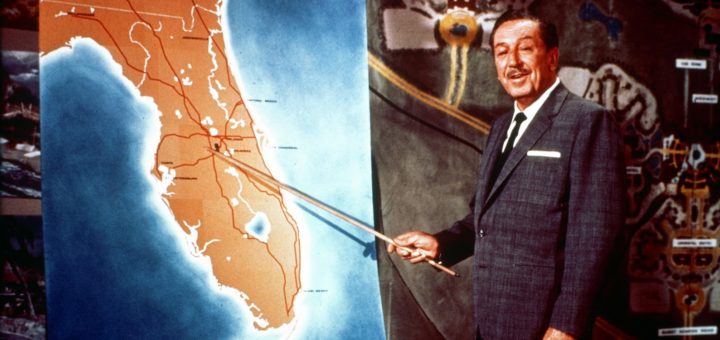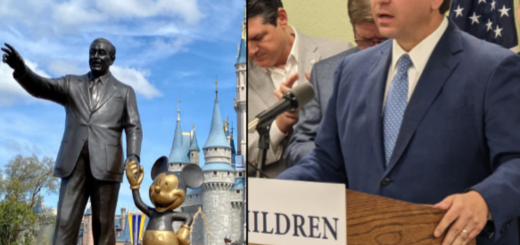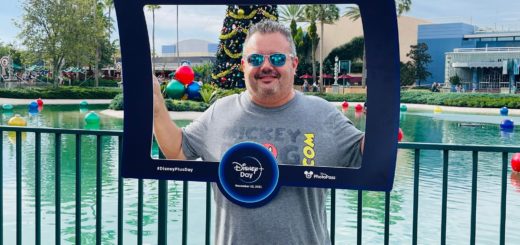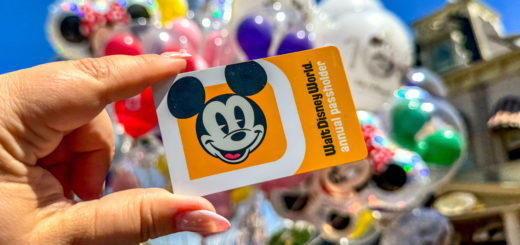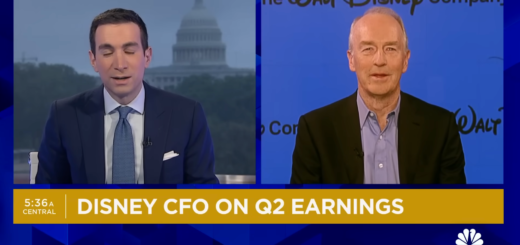Could Disney Leave Florida?
My non-Disney friends rarely ask me about anything Mouse-related. When they bring something up, I know the subject has entered the collective consciousness.
The last time this happened was when Disney switched from free FastPasses to the paid Disney Genie+ service last Fall.
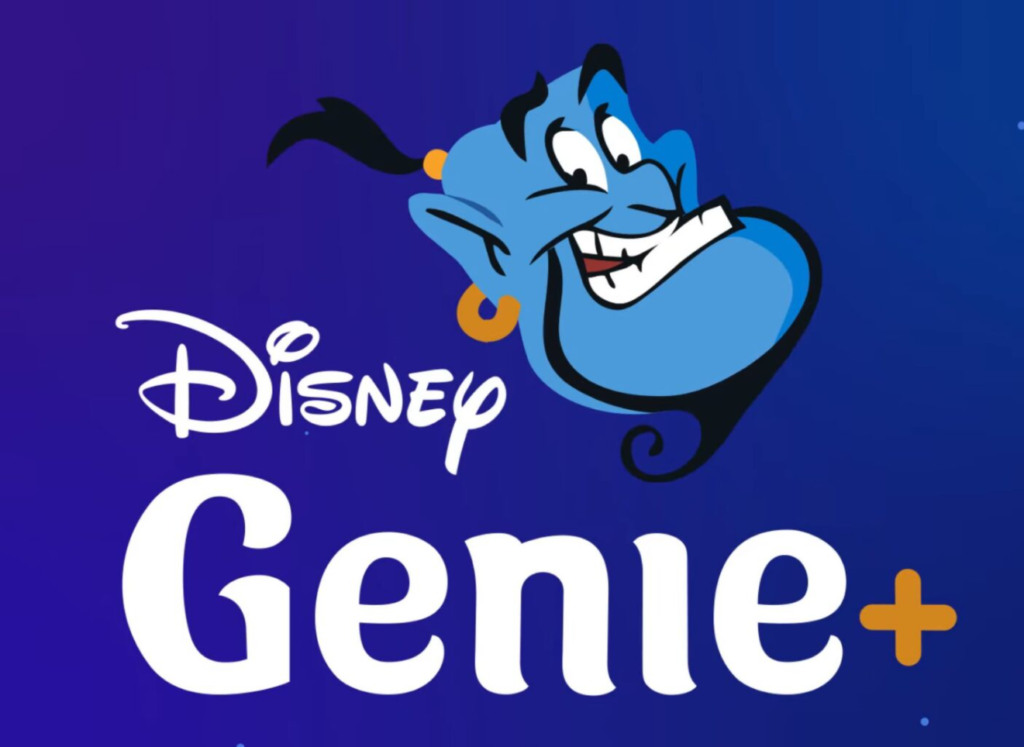

Now, people are asking me about something that shouldn’t pass the laugh test…but here we are.
The question is simple. Could Disney leave Florida? The short answer is absolutely not, but I’ll explain a few ways it could technically happen.
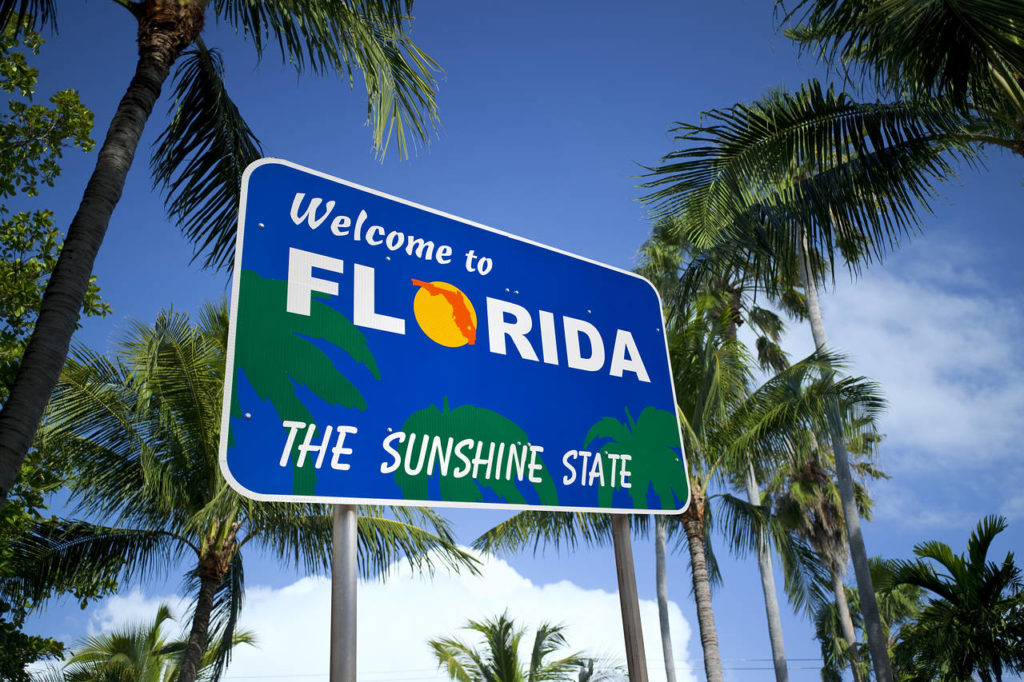

PHOTO: GETTY IMAGES
What’s Happening?
Politicians refer to certain parts of the year as Silly Season. That’s the time when elected officials and potential ones say stuff that’s patently absurd.
In Florida, we recently entered Silly Season as some former allies of Disney adopted a well-known political tactic.
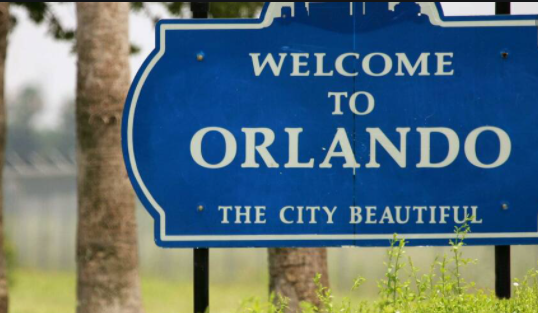

Photo: Visit Florida
The simple premise is that when you cannot defend something, you attack someone and place them on the defensive instead.
So, when Florida’s legislature inexplicably passed the divisive legislation known as the Don’t Say Gay bill, Disney was one of many organizations that decried it.
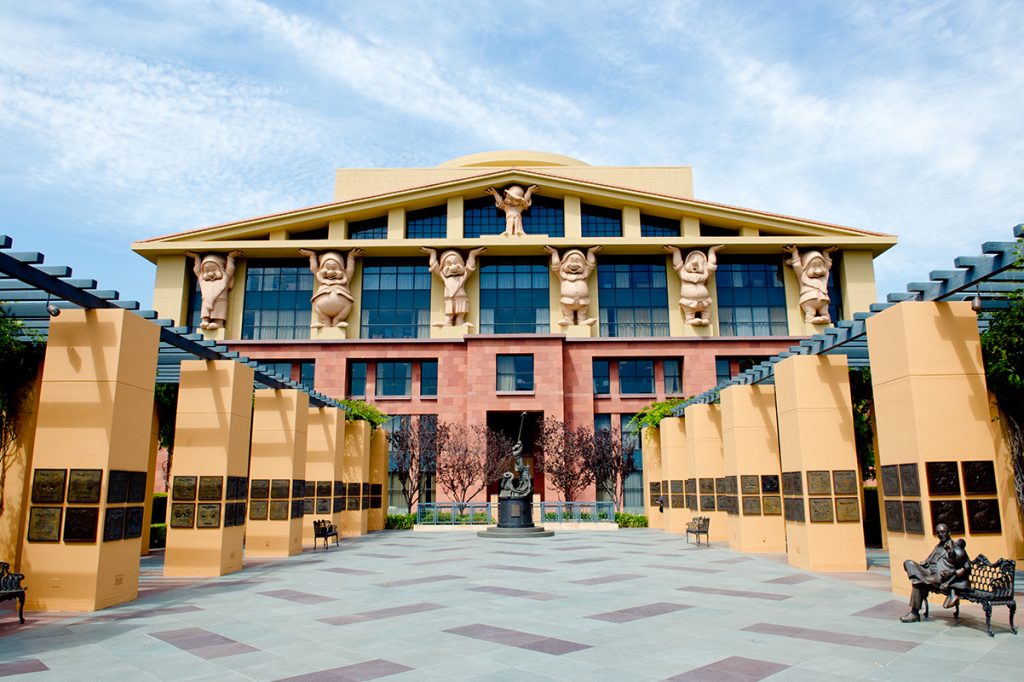

Image: Disney
If anything, Disney executives reacted too slowly and too quietly in denouncing the bill at first, which has triggered a crisis in confidence for CEO Bob Chapek.
For his part, Chapek misconstrued his relationship with the elected officials that Disney had supported financially.
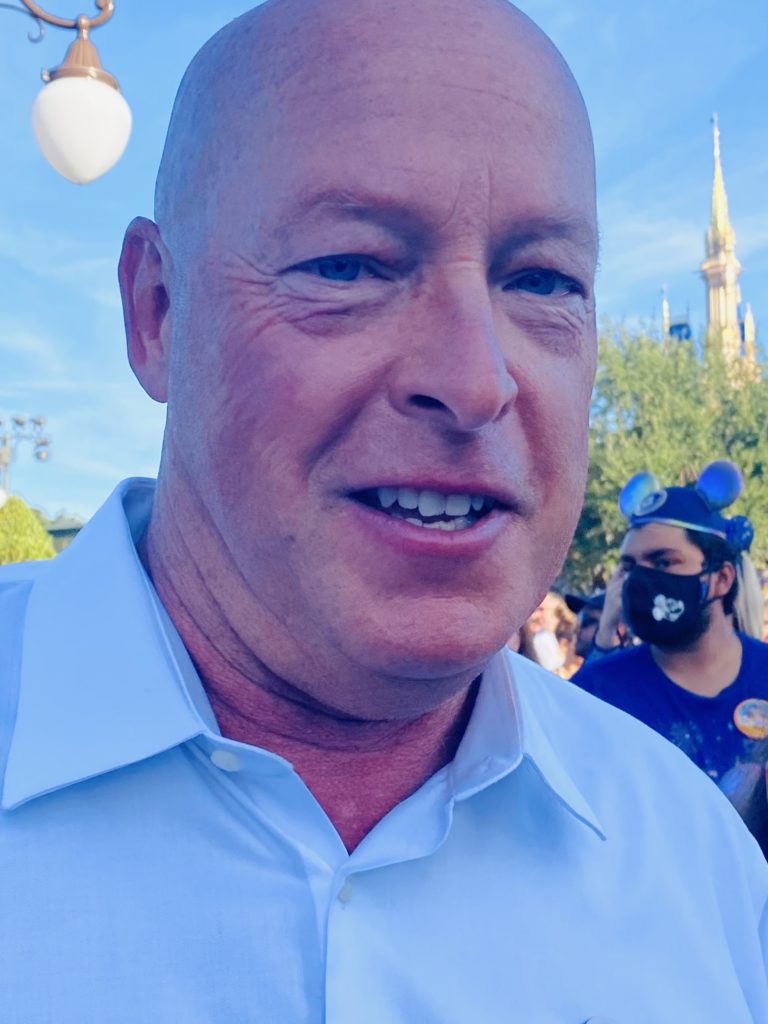

Meanwhile, they pounced on the opportunity to score cheap points off Disney, a corporate entity that cannot defend itself aggressively in the court of public opinion.
Softball Disguised as Hardball
This unexpected behavior angered Disney and led to a much harsher, albeit tardy, condemnation of the legislation, which may not survive legal challenges anyway.
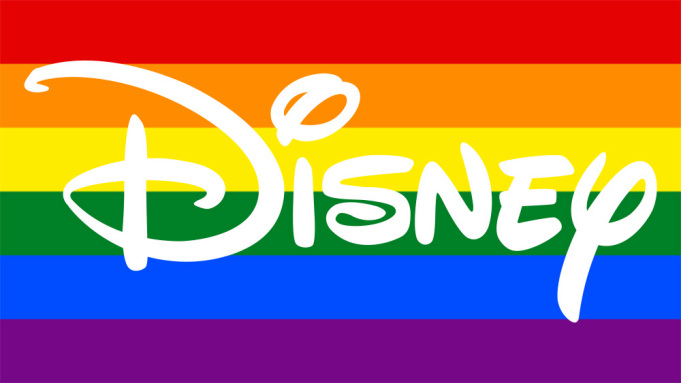

The court system has already thrown out multiple previous declarations from current Florida elected officials.
I say this for non-political reasons. It’s a demonstration that much of what we’re discussing here comes down to theatrics.


(David Roark, photographer)
Saying that you’ll do something and then achieving that goal within the guidelines of the American legal and legislative system are two VERY different things.
If you can’t tell from my tone here, I think most of this is nonsense. Disney just aggressively slapped at politicians it has previously bankrolled.
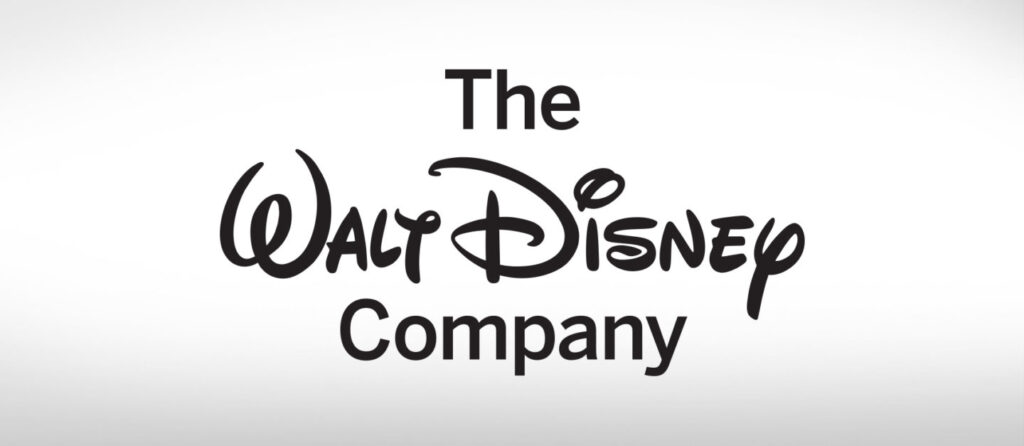

Photo: The Walt Disney Company
They countered with a thinly veiled threat that they could do things to make certain aspects of running Disney harder.
In the same breath, Florida’s Governor indicated that he wouldn’t remove the $570 million in tax incentives for Disney workers to move to the Sunshine State.
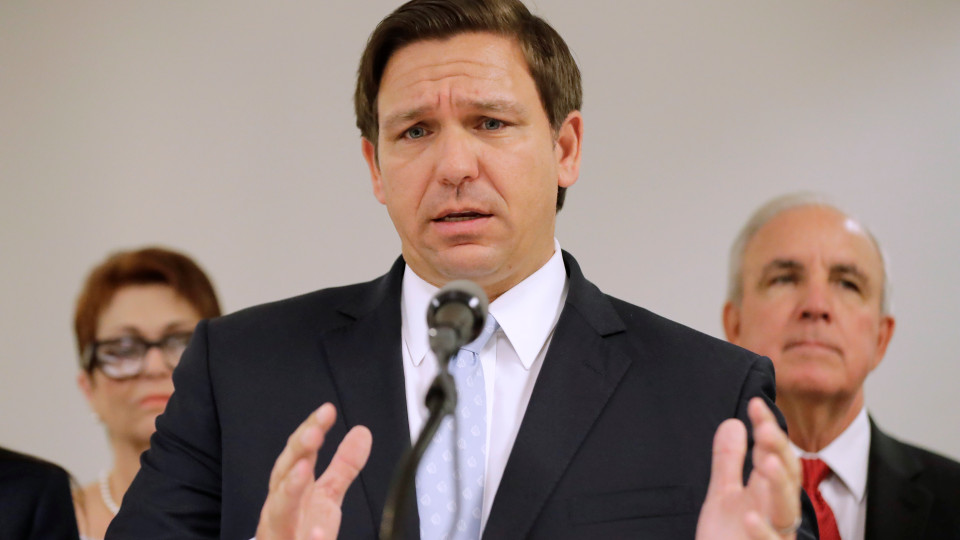

(AP Photo/Brynn Anderson)
Stating the declaration in non-political terms, it’s the equivalent of “You can hurt me, I can hurt you, and I’m ready to drop this. Are you?”
Yes, Florida politicians have at least contemplated removing Disney’s current legal privileges from the Reedy Creek Improvement District.
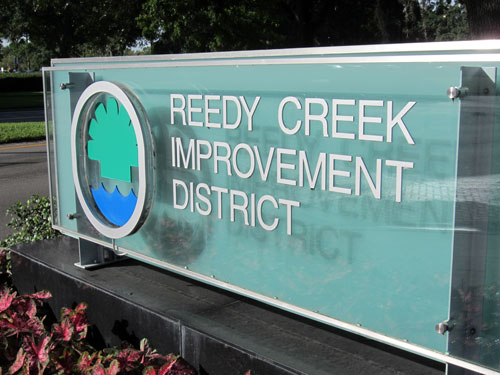

Photo Credit: https://www.worldofwalt.com/disney-private-government-disneys-reedy-creek-improvement-district.html
Is that likely to happen? Absolutely not.
Then again, Scarlett Johansson publicly scorching the Earth with Disney seemed unlikely at one point as well.


Source: @theblackwidow
Diplomacy hasn’t been Disney’s strongest skill during the pandemic, and executives rightfully feel somewhat betrayed by this impractical legislation.
Having watched what happened with Anaheim’s City Council races a couple of years ago, I wouldn’t irritate the Mouse in this area, but that’s a side discussion.


Photo: Jeff Antenore / for Voice of OC)
What Could Happen?
Let’s play out the theoreticals game for a moment.
Assume that Disney and Florida’s current elected officials don’t kiss and make up.


Now then, let’s say that the upcoming election in November doesn’t change the structure of the current state government significantly.
If Disney executives remain disgruntled, would they contemplate abandoning Walt Disney World and building a new theme park somewhere else?
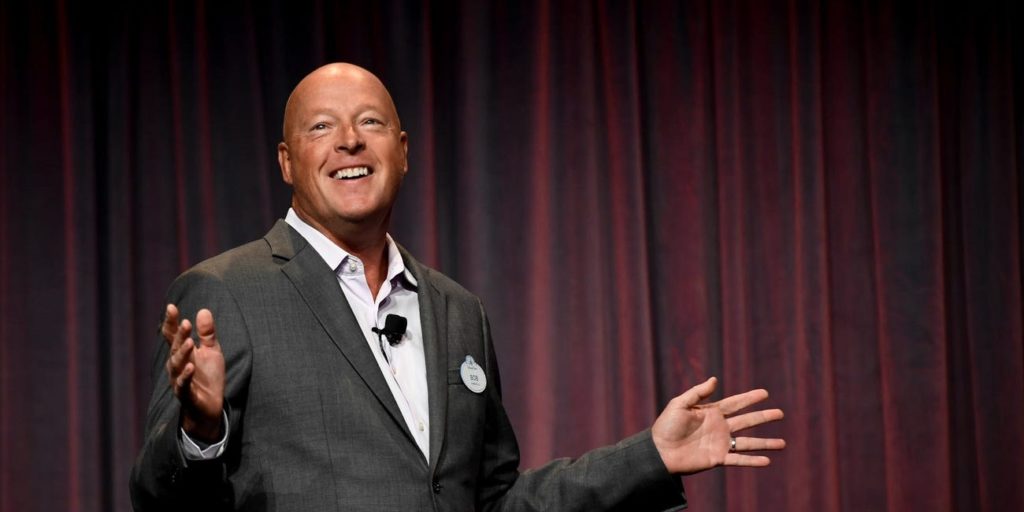

Photo: Matt Stroshane/Courtesy Disney Parks
The answer is, “OF COURSE NOT!” Come on. That’s just common sense.
Still, we’ll explore the idea for a few moments anyway. Right now, Disney earns billions of dollars a year from Walt Disney World.
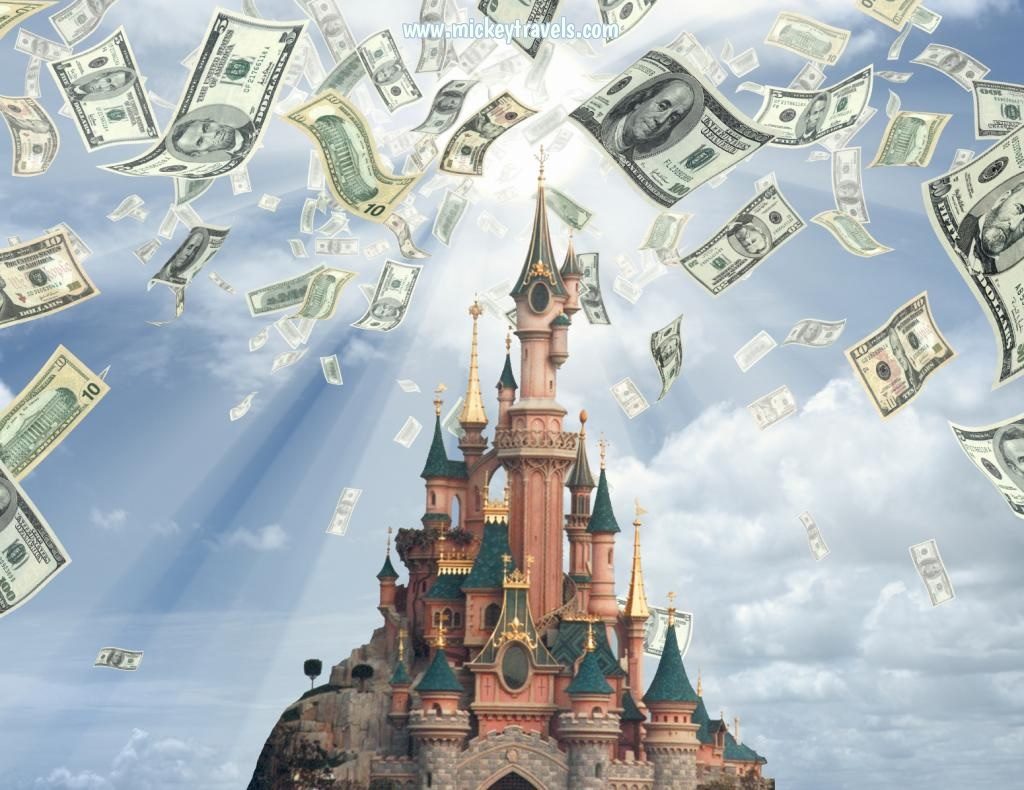

As a reminder, Magic Kingdom claims the title of the most trafficked theme park on the planet. The other three gates are in the top 10 as well.
So, half the theme park industry’s most important parks are in Orlando, and most of them are Disney entities.
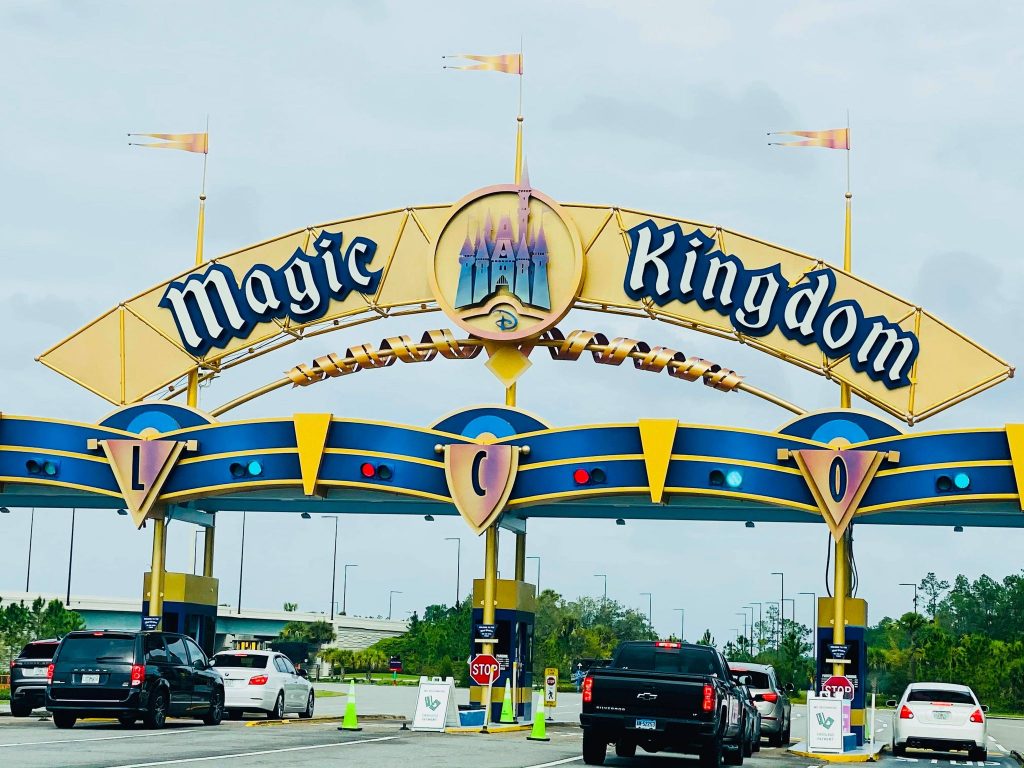

Were Disney to move, it’d face the same problems that Uncle Walt did in the 1960s, only to the nth degree.
You may recall that Walt famously used shell corporations to purchase the land until a “girl reporter” famously outed him as the buyer.
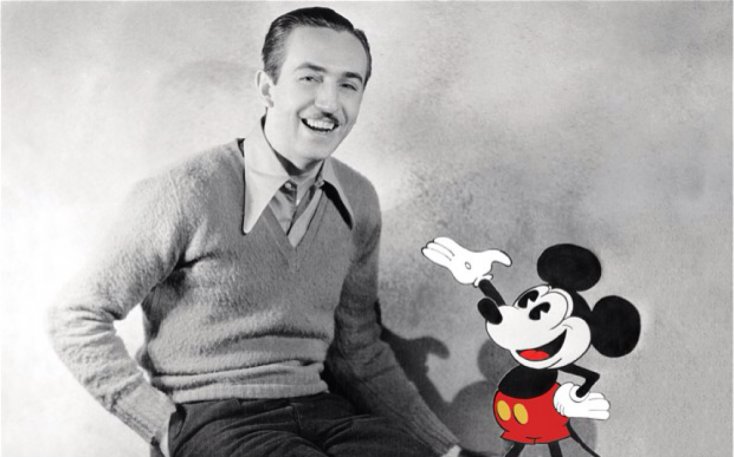

The price tag spiked after that. Historians joke that Uncle Walt paid $800 for the first acre of land but then $80,000 for the final one.
As a reminder, Disney owns so much land in Central Florida that it’s nearly twice the size of Manhattan at this point.
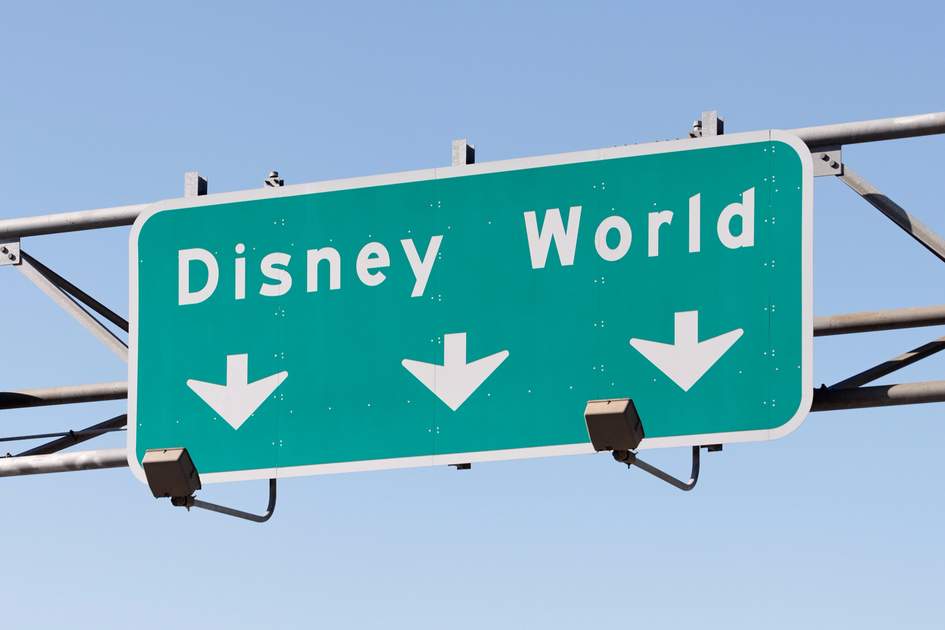

How much would Disney pay to acquire that much land elsewhere? It’d be a lot. Also, there are other concerns.
Let’s say they sought a place with plenty of open land like Wyoming. Who is to say that the company wouldn’t face the same governmental issues there?
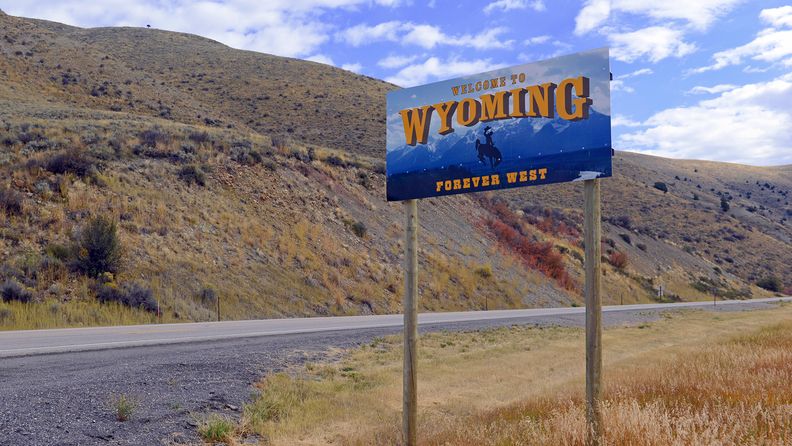

Photo: Robert Cicchetti
How Disney Could Do This
So, I think a reasonable estimate for such a project would cost between $6.4 billion and $11 billion for the land alone.
That’s before we factor in the cost of building literally anything. As a reminder, Disney’s recent themed lands have cost $1 billion or more.


Realistically, building a new theme park to rival the scale and scope of Walt Disney World is a $25 billion project…at a minimum.
However, there’s some upside to that. Plenty of governors would love to have Disney come to their states, just as W. Hayden Burns did in 1965.


Theoretically, Disney could request that various states make pitches. And that premise isn’t as ridiculous as it may seem on the surface.
After all, we just witnessed something similar with Amazon. Remember the HQ2 negotiations?
The company opened bidding for its second headquarters. In exchange, it promised to add a $5 billion facility and hundreds if not thousands of jobs.


This seems like a good time to mention that Walt Disney World has employed as many as 77,000 people.
Fun fact: that’s more than double the 32,463 votes that decided the 2018 Florida governor’s election.
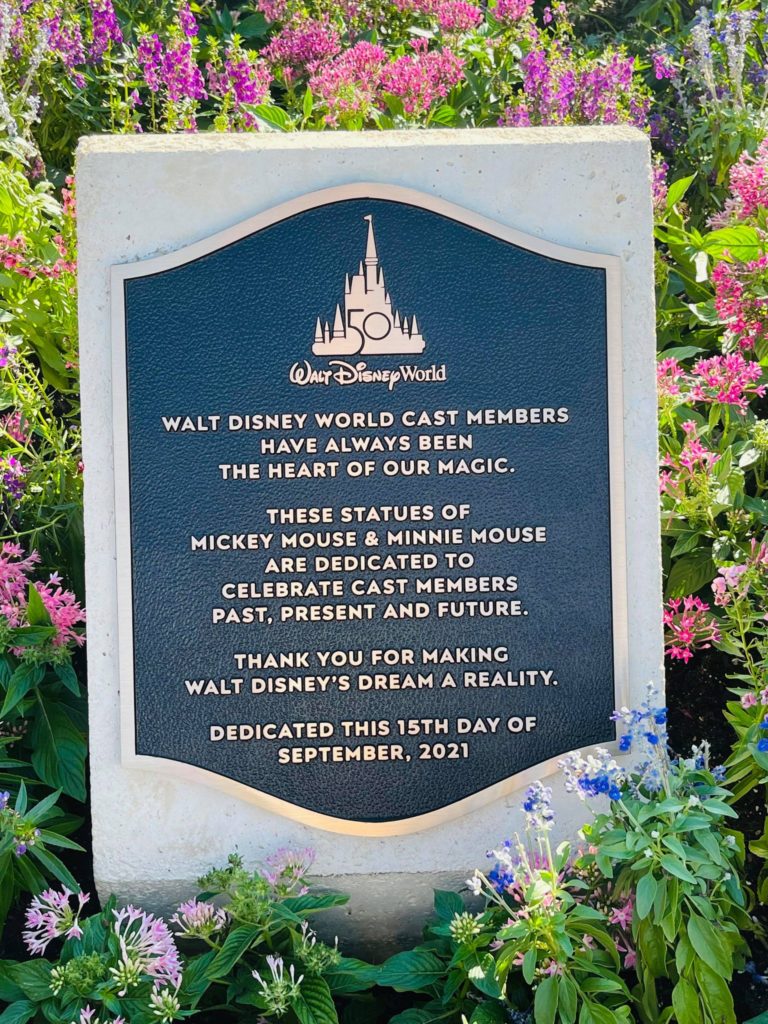

Name a politician who wouldn’t love the idea of pulling off that sort of financial and electoral score.
The Politics of Job Creation Bidding
To wit, 238 cities (!) bid on the Amazon HQ2 project. Of course, not all of them were bids that the company would have seriously considered, but that’s beside the point.


There’s one other significant takeaway from the article I just mentioned.
California’s governor recently and correctly stated that his state’s politics more closely align with Disney’s.
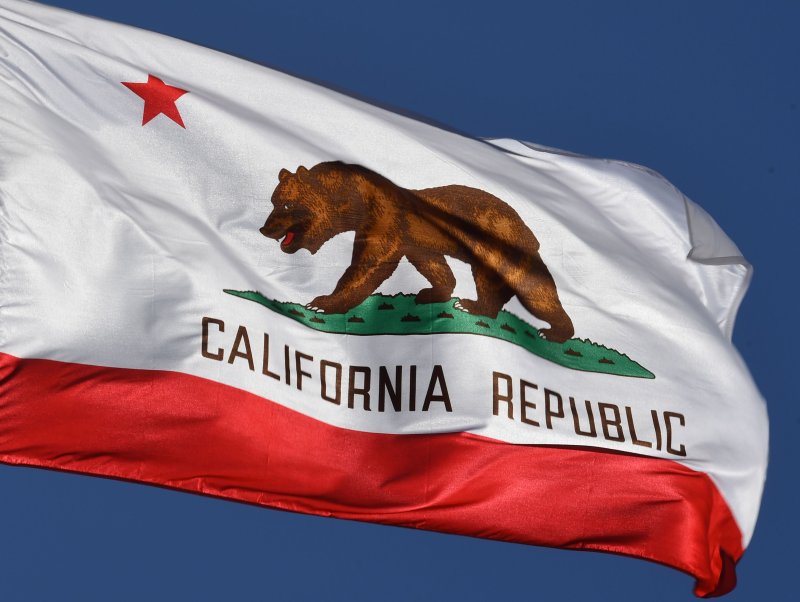

Photo: MARK RALSTON/AFP/Getty Images)
During the HQ2 bidding, “Many of the highest tax—and most often politically liberal—states offered some of the largest incentives to Amazon.
Disney could theoretically appeal to the same groups by asking for incentives to build a new theme park there.
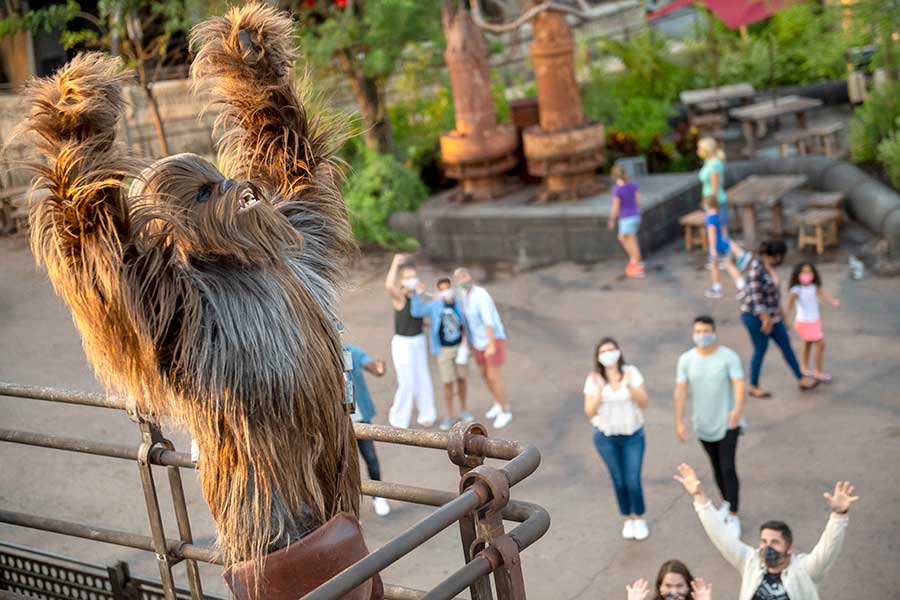

However, I should point out the later challenges of the HQ2 bidding. First, Amazon chose two “winners,” Arlington County, Virginia, and Long Island City in Queens, New York.
The Queens project collapsed after Amazon faced countless headlines referencing the agreement as the worst kind of corporate welfare.
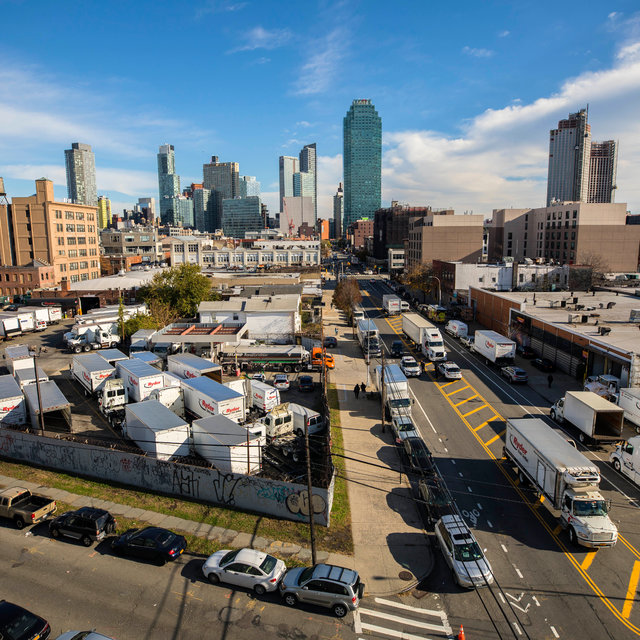

Photo: Amazon
Meanwhile, Amazon maintains grand ambitions for the Northern Virginia location.
There’s a flip side to that, though, one that could be a cautionary tale for Disney.
Amazon once promised up to 8 million square feet of office space. It later dropped its guarantee in half, only assuring 4 million.
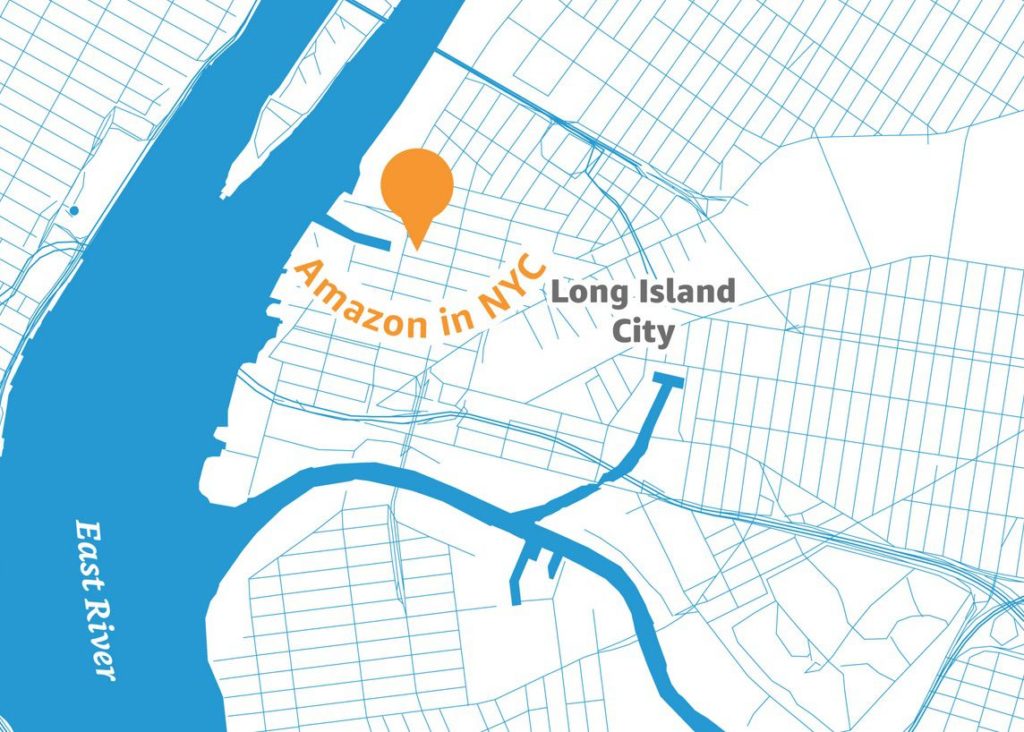

The Verge
If Disney promised a new theme park of a certain size, it had best deliver immediately.
Even then, the Mouse faces a challenge in selling a need for corporate tax breaks as it earns $67 billion annually in revenue.
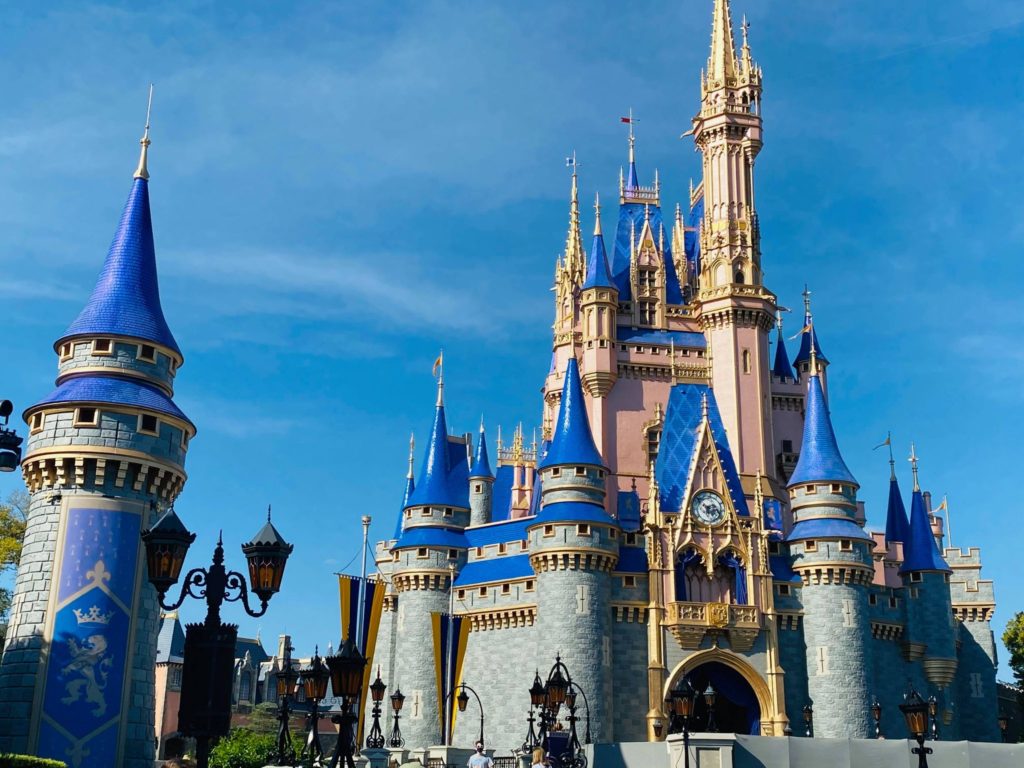
Final Thoughts
If I were Disney, I would actually explore the possibility of tax incentives for a new theme park in a different state at a later date down the line.
More parks mean more revenue, and Disney should have a third American theme park. It’s even tried to build one before.
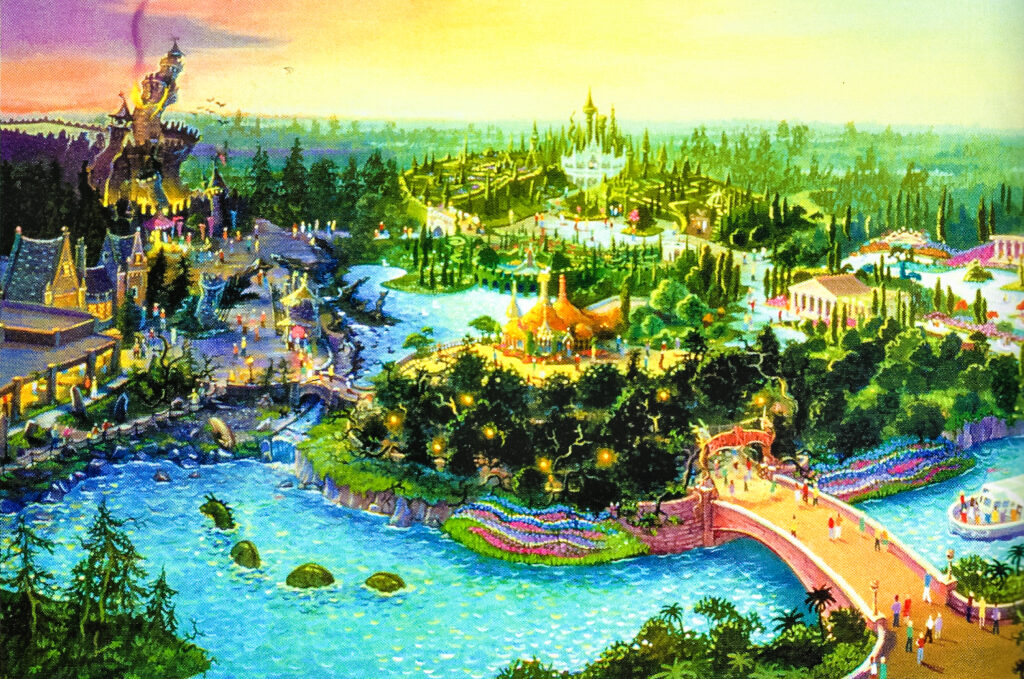

I just wouldn’t do it now because of a tiff with elected officials. Those come and go.
Disney theme parks are generational and should never involve rushed decisions.
Feature Image: Disney


